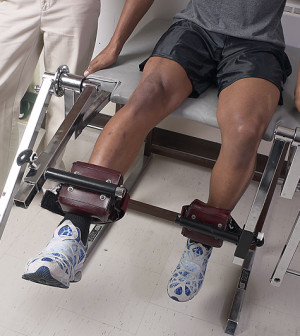- FDA Approves New Antibiotic Against UTIs
- New School Lunch Rules Target Added Sugars, Salt
- Dairy Cows Moved Across State Lines Must Now Be Tested for Bird Flu
- TikTok Riddled With Misleading Info on Health: Study
- Emulsifier Chemicals Are Everywhere in Foods. Could They Raise Diabetes Risk?
- Opioids During Pregnancy May Not Raise Psychiatric Risks for Offspring
- Could Heartburn Meds Raise Your Migraine Risk?
- Drug, Alcohol Abuse Goes Untreated in Many Ex-Prisoners
- Watchdog Group Says U.S. Food Recalls Rose Again Last Year
- Genes Could Mix With Pesticide Exposure to Raise Parkinson’s Risk
‘House’ TV Series Leads to Real-Life Diagnosis


An episode of the TV medical drama “House” helped doctors determine the source of a patient’s mysterious symptoms, a new report reveals.
The man had severe heart failure but the cause of the condition and other health problems remained unknown after more than a year and multiple hospital visits. Coronary artery disease is a common cause of heart failure, but was ruled out in this case, the study authors said.
In May 2012, the patient was referred to the Marburg University Clinic in Germany. The medical team there reviewed the patient’s records and learned that in November 2010 he received a metal-on-plastic hip implant to replace a broken ceramic-on-ceramic implant.
Within six months, the man had developed symptoms such as underactive thyroid, acid reflux, increasing loss of vision and hearing, unexplained fever and, eventually, severe heart failure, according to the study, published Feb. 7 in The Lancet.
The Marburg team noticed that the patient’s symptoms closely resembled those of a fictional patient in an episode of “House”, a series in which lead character Dr. Gregory House, played by actor Hugh Laurie, solves difficult medical cases.
The real-life conclusion was that the patient was suffering from cobalt poisoning caused by debris from the metal part of the hip replacement, the researchers said in a journal news release.
The man was referred back to his orthopedic clinic and received a new ceramic hip implant. After that, his heart function improved and he had no new incidents of unexplained fever or acid reflux, according to the report.
More information
The U.S. National Library of Health has more about cobalt poisoning.
Source: HealthDay
Copyright © 2024 HealthDay. All rights reserved.










